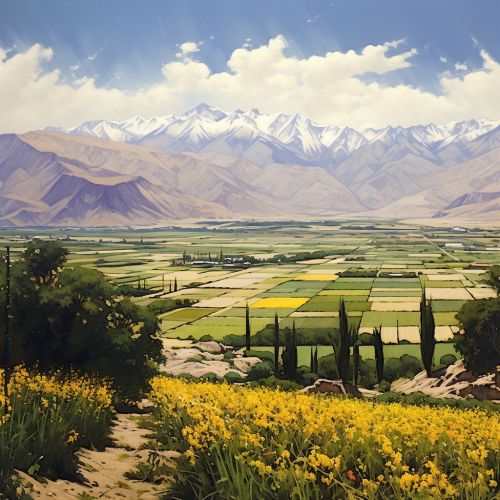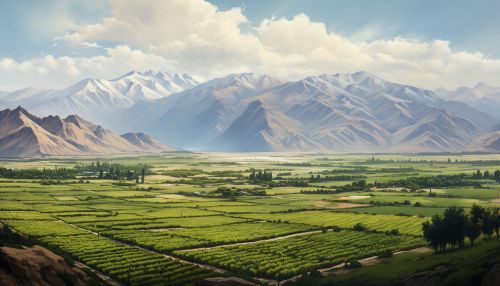Mendoza (province)
Geography
Mendoza is located in the western part of Argentina, nestled at the foot of the Andes mountain range. The province spans an area of approximately 148,827 square kilometers, making it the seventh largest province in the country. The region is characterized by its diverse geography, which includes vast plains, high mountains, and fertile valleys.


Climate
The climate in Mendoza is largely influenced by its geographical location. The province experiences a semi-arid climate, with hot summers and cool winters. The average annual temperature is around 16°C, but can vary significantly depending on the altitude. The Andes mountains act as a natural barrier, protecting the region from the Pacific Ocean's humid winds, resulting in a dry climate with low rainfall.
History
The history of Mendoza province is deeply intertwined with the indigenous Huarpe people who originally inhabited the region. The arrival of the Spanish in the 16th century marked a significant turning point in the region's history, as it led to the establishment of the city of Mendoza in 1561 by Pedro del Castillo.
In the 19th century, Mendoza played a crucial role in the Argentine War of Independence, serving as a key base for the Army of the Andes led by General José de San Martín. The province's history is further marked by the devastating earthquake of 1861, which resulted in significant loss of life and led to the reconstruction of the city.
Economy
Mendoza's economy is primarily based on agriculture, with a significant focus on viticulture. The province is renowned for its wine production, particularly Malbec, and is considered one of the great wine capitals of the world. Other important agricultural products include olives, fruits, and vegetables.
The province also has a growing industrial sector, with industries such as oil refining, chemical production, and metallurgy playing a significant role. Tourism is another key contributor to the economy, with visitors drawn to the region's natural beauty, wine tours, and outdoor activities.
Culture
Mendoza's culture is a blend of indigenous traditions and influences from European immigrants, particularly the Spanish and Italians. This cultural fusion is evident in the province's cuisine, music, and festivals. One of the most notable cultural events is the Vendimia Festival, an annual celebration of the grape harvest that includes parades, music, and dance.
Education
Education in Mendoza is governed by the provincial Ministry of Education. The province is home to several universities, including the National University of Cuyo and the University of Mendoza, offering a wide range of academic programs. There are also numerous primary and secondary schools throughout the province.
